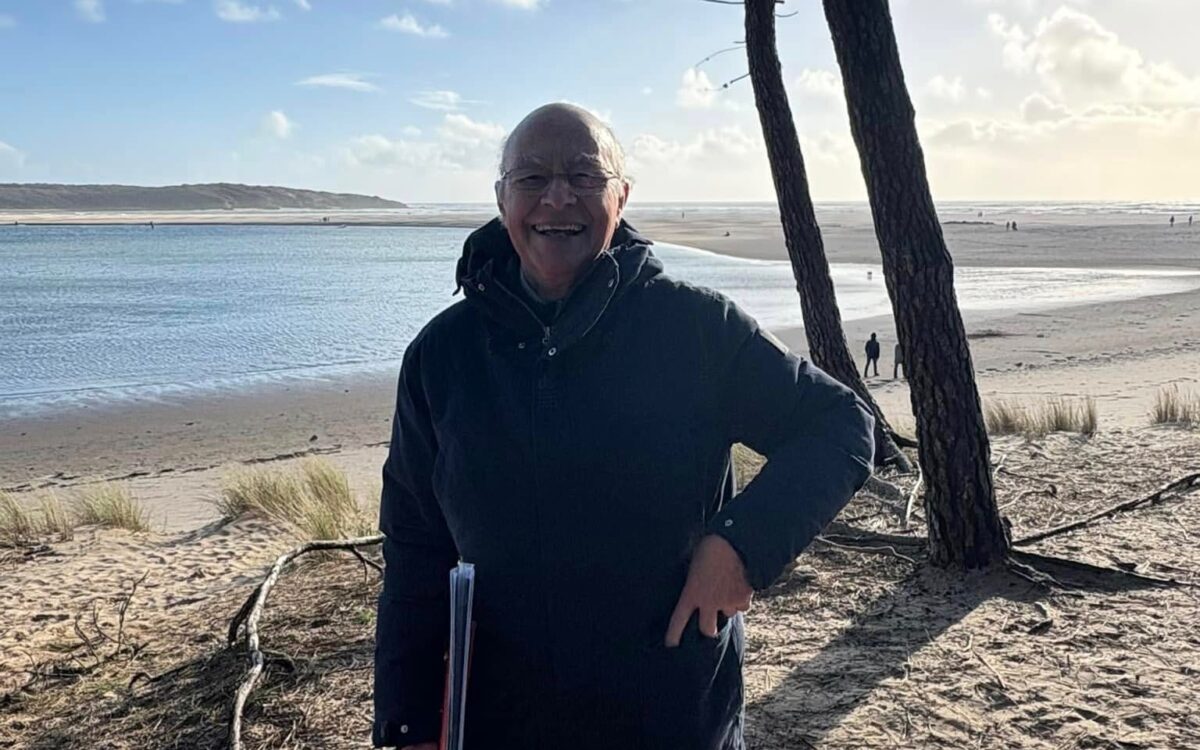THE DNA OF MUSIC: STRING STAR VLADIMIR SHABANOV’S SOULFUL DEVOTION
THE DNA OF MUSIC: STRING STAR VLADIMIR SHABANOV’S SOULFUL DEVOTION
Of all instruments in the orchestral orbit, it is said that the violin and viola are the hardest to master. ‘Standout instruments’ like the piano, they are the ‘star-makers’ and ‘breakers.’ The dangerous magic created by strings carries the silver song of a hundred birds, evokes the tears of a mother, and conveys the hopeful dreams of a lover.
Conversely, a single false note vibrating on these strings is a death knell, a cracked mirror, a knife in the heart. Heard a mile away, a bad note on the violin resonates discord throughout the orchestra for beats until it is drowned by a darker note. Performing the violin/viola is the ‘high wire act’ of the orchestra. Dedicating a musical career to these strings is risky, demanding, and ultimately rewarding for those willing to pay the piper. It can be particularly tough on little boys. No high-impact sports, no hard labor, no risk to the hands is allowed. Punishing hours of practice, all for the lonely beauty of music, the treat for the ears of strangers in a darkened theater. The reward is applause, and satisfaction of interpreting the notes as the composer intended. As 29-year old Vladimir Shabanov Siberian-born, award-winning viola/violin prodigy, soloist and concertmaster at Novosibirsk State Academic Opera and Ballet Theatre attests, it is not for everyone. But for him, there was no choice. It is in his DNA. Traits and affinities are passed along, to be nurtured, or neglected. In the fortunate case of Vladimir Shabanov, it began at home. “My uncle, Vladimir Popolzin graduated from the Novosibirsk Conservatory as a bayanist. Being a jazz composer and winner of various competitions, he gives a lot of performances on a tour in Europe and Russia. My sister Natalya Krukovskaya graduated from the Saint Petersburg Conservatory. She works in the Mikhailovsky Opera and Ballet Theatre in Saint Petersburg.” Vladimir’s passion took hold early, at age four. “I began practicing violin when I wasn’t even five years old. At the age of six, I was enrolled in Suzuki school for gifted children, followed by Music College and the Conservatory.” This opportunity ruled out Siberian winter sports for sure. Vladimir poured his energy into music, with no regrets. “Since childhood, my parents and teachers paid great attention to my hands. As a result, I was not allowed to engage in high-injury sporting activities and hard physical work. This was because a hand or finger injury could end the career.”
The discipline came easily to him; it was instilled over two decades, and as a gifted musician, he saw the value in aiming for perfection. “Learning in educational institutions alone took 20 years, but in fact, a musician gives his life to improving the practice of the instrument and this process never stops. As a child, I was practicing for six hours every day and, while preparing for performances, for eight or more hours daily. When I started working in the theatre, I worked on solo compositions in addition to daily rehearsals and performances between 8 and 12 hours a day.” Vladimir began with the violin, then transitioned to the viola. “I play both viola and violin, and these instruments are the same for me. Everyone knows that violin is one of the most difficult instruments, just as viola. Plus, viola requires more physical strength and finger span.”
Along the way, Vladimir developed a comprehensive knowledge of music and composers, his process is both thoughtful, and emotional. “I have also noticed the following phenomenon: composers who have never written for viola begin to write for this instrument at the advanced age or even near the end of their life. I think this is because viola has a deep, smooth, and rich sound, which is closer to the human timbre; the voice. The viola can capture the depth of composer’s thoughts and life experience.” While the violin was Vladimir’s first instrument, he reached for the viola. “I wanted to broaden my creative and professional horizons as a musician. I liked viola very much and when I started practicing it I fell in love with this instrument. Now I literally never part with it.”
Shabanov’s own depth is appreciated by his boss, V.A. Kekhman, the distinguished General Director of the Novosibirsk State Academic Opera and Ballet Theatre: “Vladimir is young, but as a prodigy who began performing early he possesses an extraordinary, extensive knowledge of opera and ballet repertoires. His artistry, responsibility and approach to the orchestra have played a critical role in the success of our string section, which conveys the essential emotional energy of musical performance.” Vladimir also composes his own music. “I actively perform compositions for violin and cello on viola and try to expand the repertoire for solo viola making my own transcriptions and scores.”
As a concertmaster, he is also a team player. “I always give the other musicians an opportunity to perform my transcriptions.” He is on the jury that chooses the musicians for the orchestra yearly, and what he looks for might surprise would-be orchestra players given his age. Vladimir looks beyond technique, he wants soul. “Of course, any musician should a prioritize be technically proficient, but it will not be enough. He also must have spiritual energy. Only with this energy, it is possible to pass your message to the audience and connect with them. I think I have plenty of this energy.”
He does not prioritize his favorite instruments as a concertmaster. “Every instrument of an orchestra plays an important role because this is one living organism. The viola complements the whole musical performance picture with deep, smooth colors.” He has crisscrossed the huge country playing for 20 years professionally. Not all concert halls are created equal. Some have hard acoustics which can dramatically affect the tone, Vladimir is no novice here, either. “I have performed in many auditoriums. One of the most memorable and emotional concerts was the one in the Grand Hall of Moscow Conservatory. Performing in this hall is certainly a tremendous internal responsibility. It has some of the best acoustics in which I have ever played. Once we played a concert as a trio which was finished with “Oblivion” by Astor Piazzolla. When we finished, we saw tears in people’s eyes. We realized that we were able to convey and share those special feelings with the listeners.” Of course, every musician has favourite composers. “Tchaikovsky and Rachmaninoff are my favourites. I also like Bernstein and Piazzolla. It is very difficult to choose my favourite works, but I am very much inspired by the Piano Concerto No. 2 by Sergei Rachmaninoff. One of my favourite compositions for viola is the the Viola Concerto by Bela Bartok. This work is one of the most difficult both from the technical and musical point of view. I’ve been playing it for many years, but every time I see a new side of it. To perform this concerto, you must be a musician of the highest technical skill with lots of pieces performed. This work is one of those that require many years of effort.”
On his next career stage Vladimir hopes to play with conductor Gustavo Dudamel’s LA Phil, one of the world’s ‘happiest’ orchestras, according to musical hearsay, and not hard to believe given the popularity of Musical Director and Conductor Dudamel. Vladimir is hopeful. “I’d love to perform in the LA Philharmonic.”
On his list of admired musicians is the US superstar Joshua Bell, whose repertoire ranges from classic to pop.
“Joshua Bell is an amazing violinist. Of course, all talented and ambitious musicians dream of such a career!
My wish is to be not only an orchestral musician but also a solo artist. I also like to experiment with various musical genres and trends very much.” Vladimir has musician friends of all genres in the US but believes that his classical Russian roots are his calling card for the difficult and popular works of his idols Tchaikovsky and Rachmaninoff. This is what will set him apart. He has his eye on the conductor’s podium and will work his way up the conducting ladder. “I am in touch with many musicians, including American ones. At the same time, as a representative of the Russian school of music, I have extensive experience in performing symphonic, opera and ballet works of the Russian composers. Along with performing, I am actively engaged in symphonic conducting. I think I could take an active part in performances with a symphonic orchestra applying my vast experience as a concertmaster. As for my technique, I was taught by professors whose roots were in violin school represented by such renowned musicians as David Oistrakh and Zakhar Bron.” Vladimir has taught as well and enjoys it. “I have worked with both small and adult students. It is also very interesting for me.” When Vladimir imparts his philosophy, it carries the emphatic positivity of a musician who has benefitted from passionate instruction and wants to play it forward.
“Every performer must not only play music but also must share his experience and leave something behind. I am ready to teach the economically disadvantaged students, as I think every child should have an opportunity to develop his talent. Inside each child may be the future Paganini!”
- ZEITBLATT Europe’s Leading News Source for Media and Culture – Magazine – Online – Television




